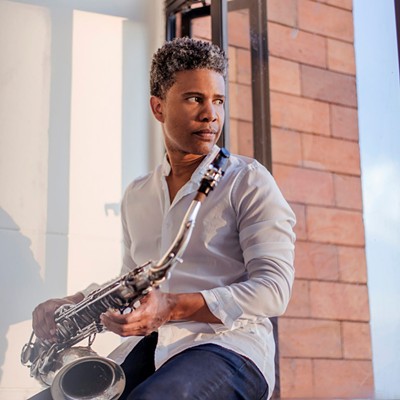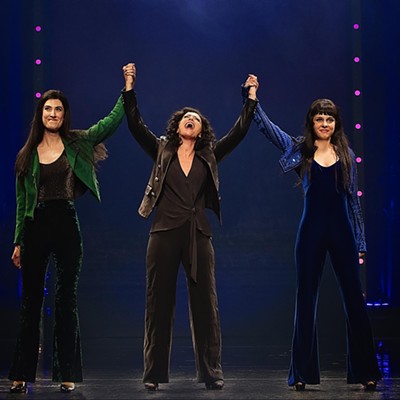Texas is an enormous state, and has long been sought out by people wishing to forge their own path and break from conventional life. There are a lot of places in the Lone Star State to lose oneself, and that opens up both positive and negative possibilities. Sometimes Texas has acted like a magnet, attracting free-thinking individuals of all sorts and from many different walks of life. Other times, Texas has been home to various religious cults, probably enticed by the ability to live mostly unnoticed in a state where people tend to mind their own business.
A few of these cults are famous enough that almost everyone has heard of them. Others are more obscure, and they are vastly different from one another. But they all spent some time in the great state of Texas.
5. The Yearning for Zion Ranch About a decade ago, a rogue, weasel-faced "prophet" named Warren Jeffs led followers of his Fundamentalist Church of Jesus Christ of Latter-Day Saints to establish a closed town of sorts, just outside of San Angelo. Jeffs's congregation was a strict throwback to early Mormon beliefs, including polygamy and arranged marriages between young girls and older male church members.
Most of the group's approximately 500 residents had relocated from communities in Utah and Arizona, quickly erecting several large structures in their new settlement and neglecting to follow various building regulations. The YFZ Ranch eventually attracted attention for allegedly allowing systematic child sexual abuse to take place. While those allegations, and the eventual raids on the YFZ Ranch, are controversial with some people, many of the group's leaders, including Jeffs, were eventually found guilty of various sexual abuse charges and issued lengthy prison terms.
4. The Children of God
The Children of God started out as a Christian movement in the late 1960s, founded by a charismatic leader named David Berg, but is best known for a creepy '70s-era policy advocating sexual relationships between children and adults. Understandably, that, along with recruiting strategies such as "Flirty Fishing," wherein female members of the group would sexually seduce potential new members, did little to gain The Children of God mainstream acceptance. In late 1969, the group of around 200 moved from Arizona to establish a colony on 425 acres near a Texas ghost town called Thurber. Under Berg's guidance, they began using Biblical first names, and gave all of their possessions to the group. Occasionally leaving the settlement to make dramatic appearances at the University of Texas campus dressed in rags, they would proselytize their weird brand of fundamentalist hippie Jesus freak religion. During the group's tenure at their Texas compound, the cult members supposedly took part in frequent orgies directed by Berg. In 1971, the group left the Texas colony after being evicted, but continued though the 1970s, until being rebranded as "The Family," and then as "The Family International," which continues to the present day, supposedly without the child sexual abuse and Flirty Fishing.
3. Zendik Farm
In 1920, Lawrence E. Wulfing was born in El Paso. Wulfing led a bohemian life and became a writer and environmentalist. He eventually changed his name to Wulf Zendik and formed the Zendik Farm in California in the late 1960s. Zendik and his longtime common law wife/girlfriend, Arol Wulf, moved the commune around many times over the following decades, settling for a period in the early 1990s in Bastrop, Texas. The group saw themselves as Eco-warriors, and lived a supposedly self-sufficient lifestyle, farming and spreading their philosophy by sending out members to sell their magazine in large cities around the country.
I often encountered one of those proselytizing members of the group selling their newsprint zine outside of the Record Exchange, and he seemed like a typical hippie deadhead type to me. Encounters with the group were frequent outside bars and clubs in Austin during the early '90s, and stories of the group's activities leaked out as well.
More cult than commune, the Zendiks had a dictatorial power structure, with the aging Wulf acting as a sort of spiritual leader, while Arol called a lot of the shots and members beneath them toiled away from dawn until dusk. More cult alarms went off when stories of the group's social and sexual practices were made public. Essentially, members had to ask the group for permission in advance to couple up, and were required to publicly review their sexual experiences afterwards. Members were also required to turn over any notable worldly possessions to the group, as well as any sources of income. After a few years in Texas, Zendik Farm moved on, and seems to have finally collapsed after the deaths of Wulf and Arol following years of declining membership.
2. Heaven's Gate
Over a period of three days in March of 1997, 39 members of a bizarre UFO cult named Heaven's Gate successfully committed a form of ritual suicide, hoping to leave their physical bodies behind to ascend to a "level of existence above human" as dictated by their leader, Marshall Applewhite. Mixing heavy doses of extraterrestrial new age gobbledygook with techniques intended to eliminate the animal nature of their existence in preparation for the step up to a level of evolution above human, Applewhite's followers eagerly chose suicide, believing that their souls would be grabbed by a UFO he said was following in the trail of the Hale-Bopp comet.
That all happened at their compound in San Diego, so what's the Texas connection? Marshall Applewhite was born in the town of Spur, Texas, and went to high school in Corpus Christi. After college he taught music in Houston at The University of Saint Thomas. In 1972, after suffering a mental collapse, Applewhite was recovering in a Texas mental hospital when he met Bonnie Nettles. The "Two" became convinced that they were prophesied leaders from the Book of Revelations and had a great purpose to fulfill. While their cult's mass suicide was still years away, the crazy belief system they developed began percolating in Houston. The couple quickly founded the Christian Arts Center here in Houston, specializing in astrology, mysticism, comparative religions, healing, metaphysics and theosophy. The seeds of their space suicide cult were indeed sown in H-Town, and I've met people who attended lectures by Applewhite in the early '70s.
1. David Koresh.
In 1959, a man named Vernon Wayne Howell was born in Houston. Following a troubled life into early adulthood, Howell experienced a spiritual awakening that eventually led him to join the Branch Davidians, a religious group that is an offshoot of Seventh Day Adventism. The Branch Davidians had built their headquarters several miles outside of Waco, and eventually Vernon Howell changed his name to David Koresh and assumed leadership of the group.
The Branch Davidians were and still are a peaceful religious sect, and although their belief system includes things such as living prophets, they are not a cult. Koresh, however, exhibited troubling, ego-driven behavior that would fit most people's definition of a cult leader, and, amid reports of underage sex and illegal firearm activities, eventually the federal government got involved. What followed is one of the most famous standoffs between the Feds and private citizens in U.S. history, and it's also controversial to a lot of people.
During the initial raid, four federal agents and six Branch Davidians were killed. Then, after a weeks-long siege on the compound, the building burned, killing 76 of Koresh's followers, including children. The cause of the fire is still disputed, with blame cast far and wide. I'll leave it to others to decide who was at fault, or whether the Branch Davidians involved operated as an actual cult, but it seems pretty clear that David Koresh at least exhibited many of the signs of a cult leader. If he'd taken his love for rock music on the road and fallen in love with a woman instead of finding religion, maybe he'd still be playing crappy coffee-shop gigs somewhere in Mexico and all parties involved at Waco would still be alive.
Those are but five of many different groups, both large and small, that could be considered cults by most people. Despite being very different from one another, they have a few things in common. They all had a controlling leader or leaders, they had non-traditional belief systems and they all spent time in the great state of Texas.





